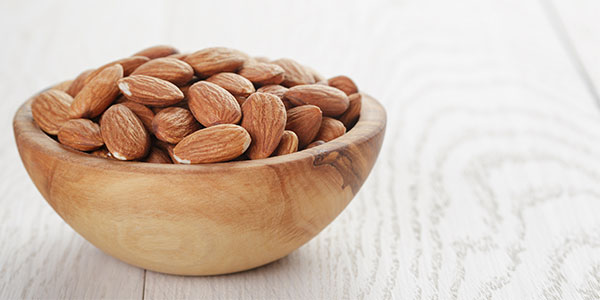Supercharge Your Gut Health
“Hippocrates told us 2,500 years ago that all disease begins in the gut,” says Trisha Cornell, CHN, a certified holistic nutritionist at Sutter’s Institute for Health & Healing. Along with influencing disease risk, the gut microbiome regulates everything from immunity and mood to brain function and body mass.
What's Happening in Your Gut
Roughly 100 trillion bacteria — anywhere from 300 to 1,500 different types — live in and on your body, Cornell says. Three to four pounds’ worth dwell within your digestive tract alone. Two families, Firmicutes and Bacteroides, make up about 90% of the bacteria in the colon.
These tiny organisms eat what you eat, and different types thrive on different foods, says Cornell. While Bacteroides prefer fiber-rich, whole foods, Firmicutes love refined carbohydrates and added sugars. So a diet heavy on pizza, pasta, bread and sugary sodas gives Firmicutes ample fuel to multiply — and can potentially affect your health.
It’s not that Firmicutes are inherently bad. Rather, “the ratio of these two groups can influence your health,” Cornell says. “In the Western world, most people have many more Firmicutes than Bacteroides. This is a problem because a higher ratio of Firmicutes is tied to so many diseases, including Type 1 and Type 2 diabetes, heart disease, certain cancers, Alzheimer’s — and even obesity.”
Firmicutes can also increase carbohydrate cravings, Cornell says. This kicks off a vicious cycle: You continually eat refined carbs to satisfy your (and your gut bacteria’s) cravings. The common consequence is weight gain.
Feed the Good Bacteria
To improve your gut microbiome, eliminate refined carbs, Cornell advises. Then give Bacteroides and other friendly organisms more of what they like: fiber, which is abundant in fruits, vegetables, whole grains, nuts, seeds and legumes.

At breakfast, swap out sugary options for whole-grain cereal or oatmeal topped with sliced strawberries or bananas. Or enjoy eggs with sliced avocados, Cornell suggests. For lunch, pack a hearty salad of spinach, diced veggies and dried beans or seeds instead of grabbing fast food. Snack on a pear or handful of raisins and walnuts midday. Prioritize vegetables, whole grains and other fibrous foods at dinner.
Eat Prebiotics and Probiotics
While all fiber helps feed good bacteria, prebiotic fibers such as inulin and pectin especially benefit gut health. According to Cornell, prebiotic fibers not only give Bacteroides sufficient food, but they also get converted into short-chain fatty acids, which may help reduce inflammation and control blood sugar and insulin. They also may reduce your risk of high cholesterol, obesity and even cancer. Cornell lists onions, garlic, sweet potatoes, plantains, miso, jicama and artichokes as excellent prebiotic fiber sources.
Also seek out foods and drinks rich in probiotics, live organisms that stimulate the growth of good bacteria. Many traditionally fermented foods such as sauerkraut, kimchi, pickled vegetables, yogurt, kefir and kombucha contain probiotics.
But be wary of probiotic-infused packaged items. Cornell says many are just junk with some probiotics thrown in — “a total marketing gimmick.” If it’s not a healthy food to begin with — say, a burrito or a candy bar — it’s probably worth skipping.
Try Probiotic Supplements
To enhance (not replace) a healthy diet and promote bacterial diversity, consider a daily probiotic supplement. “I don’t know anyone whose gut is not out of balance, so a daily probiotic supplement can really help rebalance the ratio of Firmicutes and Bacteroides,” Cornell says.
Probiotic science is still relatively young, but Cornell says researchers are actively looking at specific strains for specific health issues, including weight. “For example, Bifidobacterium lactis has been found to reduce obesity and inflammation,” she says. “These single-strain probiotics are still in their infancy, but to aid weight loss or manage sugar and carb cravings, look for a product that contains a high amount of B. lactis.”
Whether or not a probiotic will benefit you really depends on its viability, Cornell says. To impact your health, the organisms must be alive when you consume them and also make it all the way to your colon where they can populate. “Probiotics need to be able to bypass many systems in your body — your acidic saliva, the harsh stomach environment — to have any effect,” Cornell says. The best way to find viable probiotics is to buy reputable, quality products.




